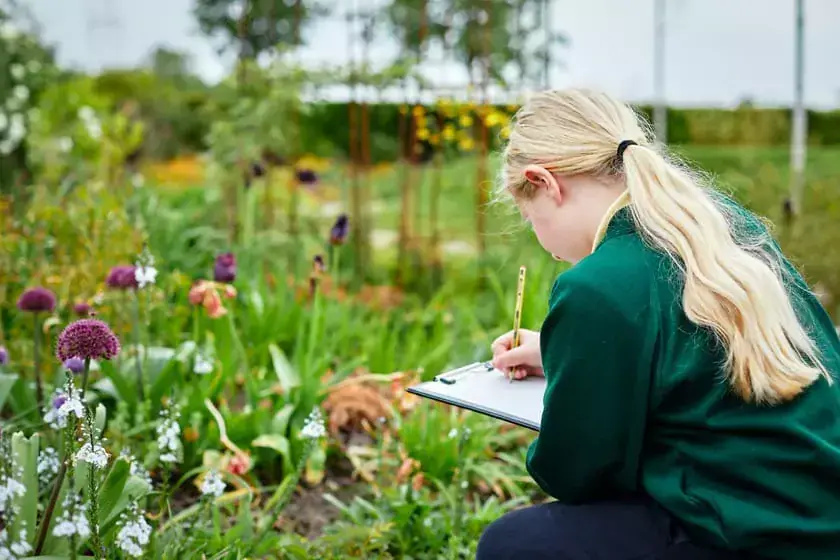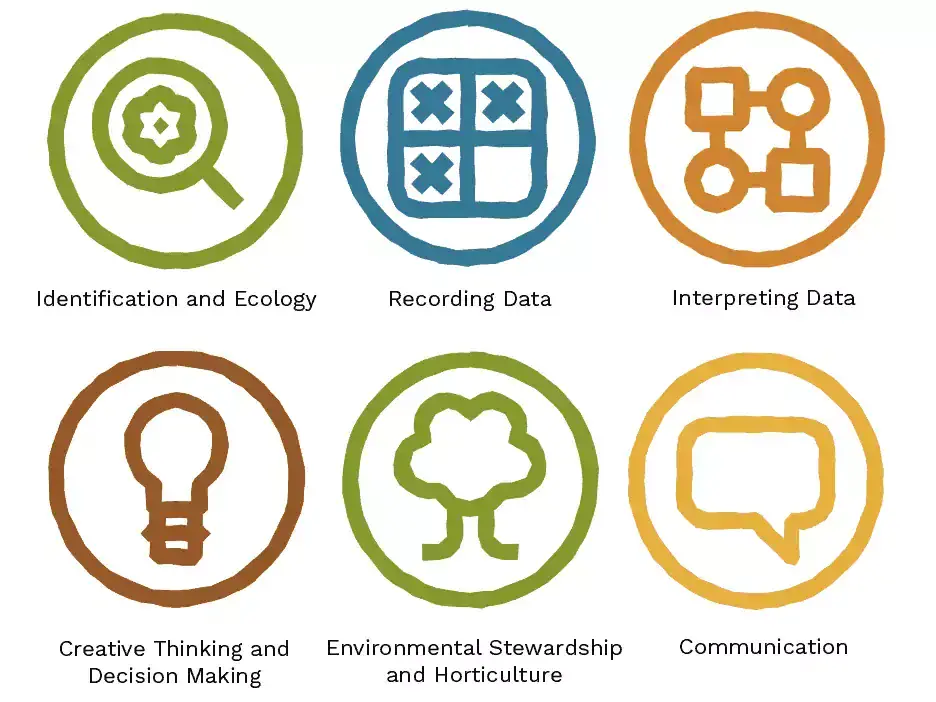Green skills
The Nature Park’s green skills provide opportunities to bring purpose to all aspects of the formal curriculum


Benefits for children and young people
The Nature Park programme is designed to support education settings to help children and young people throughout their formal learning to find meaning in nature to engage more with nature in both their lives and their learning as a result.
Each step in the Nature Park process builds on effective teaching practices by valuing children and young people's existing knowledge and experiences. It helps them to build the skills and knowledge that will allow them to make decisions about, plan and carry out habitat enhancements to improve their site for nature. They'll also develop the skills needed to work together to build positive change and to act on behalf of nature, their education setting and their local community.
At the heart of the programme's green skills development is the wellbeing of the children and young people participating. It's important that everybody feels included and empowered to develop their connection to nature and to care for each other, the planet and our collective future.

Participation in the programme supports development of the following green skills. The icons above can be found on our resources and indicate what skill development can be developed alongside curriculum knowledge.
Identification and ecology
Observing, noticing and identifying nature.
Purpose: To develop the key skill of confidently knowing and identifying features of their local area and biodiversity through noticing, observing and accurately identifying species, habitats and local characteristics.
Recording data
Using tables, drawings, photographs, digital tools, maps and other means to make observations about and measurements of nature.
Purpose: To develop the key skill of confidently, systematically and accurately collecting and recording information about biodiversity as well as the capability to capture the views and ideas of their school community.
Interpreting data
Using information from data to say what they've found out.
Purpose: To develop the key skill of using the data they've collected to identify findings, notice patterns, consider the perspectives of others and to inform action about improvements relating to local nature and community needs.
Creative thinking and decision making
Making evidence-based decisions and working collaboratively to design creative solutions to nature-based issues and finding opportunities for change.
Purpose: To understand the importance of using evidence to support their decisions, to listen to each other’s ideas and to make collaborative and creative decisions about how to enhance biodiversity and develop their outdoor spaces for people and nature.
Environmental stewardship and horticulture
Having the skills, responsibility and confidence to care for and advocate on behalf of local nature, habitats and living landscapes.
Purpose: To develop the tools and motivation to improve biodiversity. To learn to respect, take care of and maintain their local landscapes as well as to take into consideration the needs and perspectives of their local community. But also, to develop the confidence to spend time outdoors and to participate in both individual and group activities.
Communication
Being able to share issues, findings and impact in spoken and written forms with different audiences to present a vision of a positive future.
Purpose: To share ideas, knowledge, skills and experiences about issues, changes and ideas relating to biodiversity, environmental development and the needs of their school and community in creative and purposeful ways.
Curriculum links are outlined in our PDF download, however, these aren't exhaustive. The programme's activities can develop, facilitate and support other interests and areas across the curriculum including art, drama, music and history. As the programme develops, we'll add resources across a wide range of subject areas.